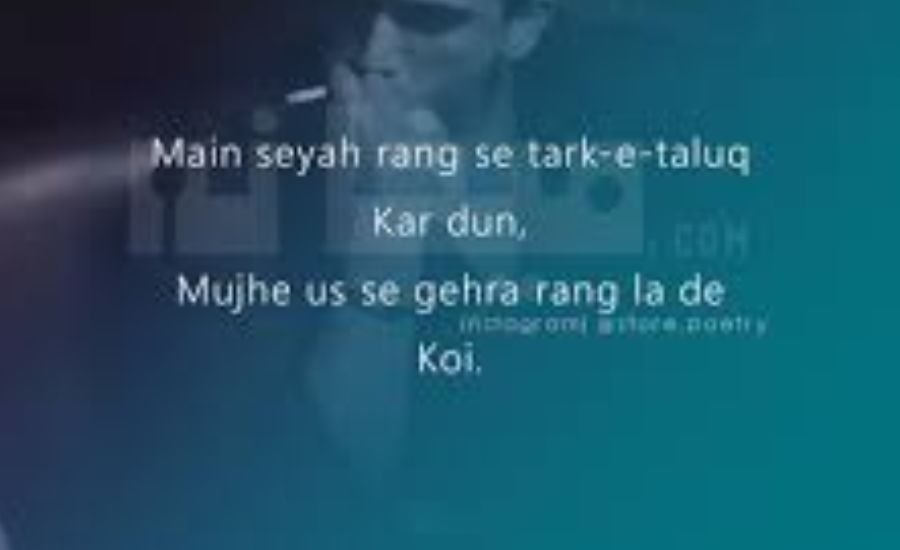Sb Samjhta Hun Tere Eshwa Gari, Breaking, Context & More
Introduction
Urdu, renowned for its lyrical richness and emotional intensity, is a language that beautifully encapsulates the complexity of human feelings. Known for its grace and romantic appeal, Urdu phrases frequently carry layers of which means in only some words. One such word that exemplifies that is “sb samjhta hun tere eshwa gari”. Loosely translated, it means “I apprehend everything approximately your elegance and attraction,” conveying a deep sense of admiration for a person’s poise and beauty.
This expression goes beyond superficial compliments, offering a heartfelt acknowledgment of the recipient’s internal and outer features. Rooted in Urdu’s poetic lifestyle, it highlights the language’s capability to specific profound feelings in a sophisticated and charming manner.
Despite its classical origins, the phrase has continued and stays applicable nowadays. It continues to be used in contemporary contexts, from romantic gestures to social media posts, where it permits speakers to talk true appreciation and admiration. This phrase is a testament to the enduring power of language and its capability to specific undying feelings, retaining a robust connection to cultural roots even as evolving with modern-day expression.
Breaking Down the Phrase

Let’s start by analyzing the components of the phrase:
“Sb samjhta hun” translates to “I understand everything”, suggesting a deep comprehension of the situation or the feelings being expressed.
“Tere eshwa” refers to “your recognition” or “your esteem”, implying a sense of admiration or respect. It could also represent the emotional value or importance that the speaker places on the other person or their actions.
“Gari ae saki” translates roughly to “it weighs on me” or “it is heavy”, indicating that the understanding of the other person’s feelings or circumstances carries an emotional burden.
When combined, “sb samjhta hun tere eshwa gari ae saki” expresses a profound statement: “I understand everything, and the weight of your respect or situation is something that deeply affects me.”
Cultural Context
This phrase, with its poetic elements and metaphoric language, likely originates from South Asian cultures where expressing emotions in subtle yet profound ways is common. The use of terms like “eshwa” (recognition) and “gari” (weight) reflects cultural values centered around honor, respect, and emotional depth. In these societies, language is often layered with nuance, and phrases like this are imbued with a sense of empathy, showing that understanding someone’s emotions is not only about comprehension but also about sharing in their emotional experience.
In the South Asian tradition, words often carry significant weight, and expressions like “sb samjhta hun tere eshwa gari ae saki” serve as a testament to this. The language used to communicate emotional and interpersonal struggles carries a sense of respect and understanding, emphasizing the importance of acknowledging the burdens that others bear.
The Emotional Depth in Relationships
At its middle, this phrase speaks to the emotional depth that paperwork the inspiration of wholesome relationships. Whether in friendships, family, or romantic connections, know-how some other man or woman’s struggles is critical for constructing robust, empathetic bonds. When someone says “sb samjhta hun tere eshwa gari ae saki”, they’re no longer just acknowledging that they recognize; they may be expressing the emotional weight that expertise incorporates.
This sort of empathy is transformative in relationships. It deepens connections and creates a sense of mutual recognize and consider. The potential to understand and validate a person else’s emotions, in particular while the ones emotions are heavy or difficult, performs a sizable role in fostering emotional intimacy and help.
The Power of Words
Words are effective tools for communication, and the phrase “sb samjhta hun tere eshwa gari ae saki” showcases the exquisite ability of language to carry empathy and emotional intelligence. In a international in which verbal exchange can from time to time feel superficial, this word serves as a reminder of the emotional potency of language.
It is a reminder that phrases can go beyond the mundane and express complex feelings in a easy but profound manner. The word captures the essence of human experience—expertise, empathy, and emotional weight—allowing individuals to explicit no longer just their thoughts but the intensity of their emotional connection with others.
The Phrase in Modern Culture
In today’s globalized world, phrases like “sb samjhta hun tere eshwa gari ae saki” are increasingly finding their way into modern media and popular culture. With the rise of social media, music, and movies, emotional expressions like this one have transcended cultural limitations. Artists, musicians, and social media influencers regularly use such terms to connect with their audiences on a deeper emotional level.
The developing appeal of those expressions lies in their capability to capture undying human feelings—feelings that resonate throughout distinctive cultures and settings. Whether in a track, a film scene, or a non-public message shared on line, phrases like this have the strength to awaken deep emotional responses, allowing humans to proportion complex emotions in a succinct and impactful manner.
The Role of Empathy in Human Interaction
Empathy is crucial in any healthy relationship, and expressions like “sb samjhta hun tere eshwa gari ae saki” capture the very essence of this. When we renowned and recognize the struggles of others, we create a area in which they sense heard and validated. This understanding strengthens relationships, whether or not they’re non-public or professional.
For example, in a work environment, a leader who tells an employee, “sb samjhta hun tere eshwa gari ae saki”, is showing genuine concern for the challenges the employee is facing. This simple but powerful statement not only communicates understanding but also fosters trust and respect. It creates a foundation for stronger teamwork and a healthier workplace dynamic.
How the Phrase is Used Today

The phrase “sb samjhta hun tere eshwa gari” may seem rooted in tradition, but it continues to resonate with modern audiences in meaningful ways. While it draws from classical Urdu literature, today’s speakers use it to express deep admiration, going beyond superficial attraction. In contemporary contexts, this expression is often shared on social media, in love letters, or during casual conversations, making loved ones feel truly appreciated for their unique qualities.
On platforms like Instagram and Twitter, phrases from Urdu poetry are being adapted to fit the digital age. People, especially those with an appreciation for South Asian poetry, use lines like “sb samjhta hun tere eshwa gari” in their posts to convey profound understanding and emotional depth toward others. This blend of traditional language and modern expression allows individuals to preserve their cultural heritage while connecting with today’s digital community.
For romantic occasions such as proposals or heartfelt messages, this phrase adds a poetic touch, emphasizing a commitment to recognizing and cherishing a partner’s true worth. It also finds a place in literary and cultural events where the beauty of Urdu poetry is celebrated, evoking nostalgia and reinforcing the timeless emotional connection of the language.
Nazm and Ghazal Tradition
Urdu literature, particularly through its two key forms—the nazm and ghazal—offers a rich exploration of human emotions. The ghazal, renowned for its expressions of love, longing, and beauty, often includes phrases that reflect deep understanding and admiration. In these verses, poets convey not just surface-level affection but also the profound, subtle qualities of love that transcend mere appearance.
The allure of a ghazal lies in its ability to evoke emotions through concise yet powerful expressions. Poets often use words that reflect the complexity and depth of love, inviting readers to connect with feelings that are often beyond verbal expression. The reverence embedded in these phrases adds a layer of sophistication and sincerity that resonates deeply with the audience.
By capturing love’s many dimensions, ghazals become more than just poems of affection—they are reflections of the unspoken, delicate emotions that define human connection. This depth of understanding allows ghazal poetry to remain timeless, continuing to speak to the hearts of readers across generations, highlighting the enduring power of language to convey the most intricate aspects of the human experience.
FACT:
Meaning of the Phrase: The Urdu phrase “sb samjhta hun tere eshwa gari” translates to “I understand everything about your elegance and charm.” It conveys deep admiration for a person’s inner and outer beauty.
Cultural Roots: The phrase has origins in South Asian cultures, where expressing emotions in a nuanced and subtle way is common. It reflects cultural values centered around honor, respect, and emotional depth.
Components of the Phrase:
- “Sb samjhta hun” means “I understand everything.”
- “Tere eshwa” refers to “your recognition” or “your esteem.”
- “Gari ae saki” translates to “it weighs on me,” suggesting an emotional burden related to understanding someone’s feelings.
Emotional Significance: The phrase highlights empathy, suggesting that the speaker not only understands the other person but also shares in the emotional weight of their situation.
Usage in Modern Culture: Despite its classical roots, the phrase remains relevant today. It is used in modern contexts, such as social media, romantic gestures, and casual conversations, to express admiration and deep emotional understanding.
Empathy in Relationships: The phrase is a reflection of empathy, which is essential for building strong emotional connections in relationships.
Urdu Literary Tradition: The phrase is part of Urdu’s rich literary tradition, including nazm and ghazal poetry, which express love, beauty, and profound emotional understanding.
Timeless Appeal: Phrases like “sb samjhta hun tere eshwa gari” resonate across generations and cultures, maintaining their emotional depth and relevance in both classical and contemporary settings.
FAQs:
1. What does the phrase “sb samjhta hun tere eshwa gari” mean?
The phrase loosely translates to “I understand everything about your elegance and charm.” It conveys deep admiration for a person’s inner and outer beauty and highlights the emotional weight of understanding someone’s feelings.
2. Where does the phrase “sb samjhta hun tere eshwa gari” originate from?
The phrase originates from South Asian cultures, particularly within the Urdu language, which is known for its poetic and emotional depth.
3. What are the components of the phrase?
- “Sb samjhta hun” means “I understand everything.”
- “Tere eshwa” refers to “your recognition” or “your esteem.”
- “Gari ae saki” translates to “it weighs on me,” implying an emotional burden tied to understanding someone’s feelings.
4. How is this phrase used in modern culture?
Though rooted in classical Urdu literature, the phrase is often used in modern contexts such as social media posts, love letters, or casual conversations. It expresses admiration, emotional understanding, and empathy.
5. What role does empathy play in the phrase?
Empathy is central to the phrase, as it reflects an understanding of the other person’s struggles or emotions and a shared emotional experience. This empathy strengthens relationships and creates a deeper emotional connection.
6. How is this phrase connected to Urdu literature?
The phrase is part of Urdu’s rich literary tradition, especially within nazm and ghazal poetry, which explore complex emotions, love, and admiration. These literary forms emphasize the depth of human connection and emotional understanding.
7. Does the phrase have modern-day relevance?
Yes, the phrase remains relevant today, as it captures timeless human emotions. It is still used in contemporary settings like social media, romantic gestures, and public expressions of admiration, retaining its emotional depth and cultural significance.
8. What makes this phrase a timeless expression?
The phrase transcends generations and cultures by highlighting deep emotional understanding and respect. It continues to resonate with audiences due to its simplicity, sincerity, and emotional potency, making it an enduring expression of human connection.
Summary:
The phrase “sb samjhta hun tere eshwa gari” is an expression in Urdu that conveys deep admiration for someone’s elegance and charm, both internally and externally. It translates loosely to “I understand everything about your elegance and charm,” highlighting a profound emotional understanding and empathy toward the other person. Rooted in South Asian culture, the phrase reflects values of honor, respect, and emotional depth, emphasizing the emotional burden of truly understanding someone’s feelings.
Despite its classical origins, the phrase remains relevant today, often used in modern contexts like social media, love letters, or casual conversations to express admiration and empathy. It is part of the rich tradition of Urdu poetry, particularly in forms like nazm and ghazal, which explore the complexities of human emotions. The phrase emphasizes the importance of empathy in relationships, making it a timeless expression of emotional connection and respect.
Read More Information About blog visit Discover Paradox






